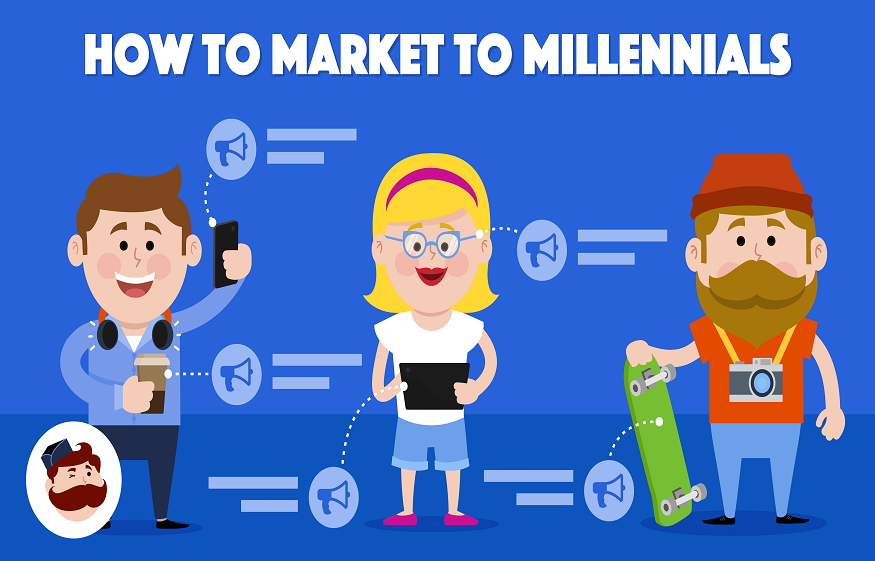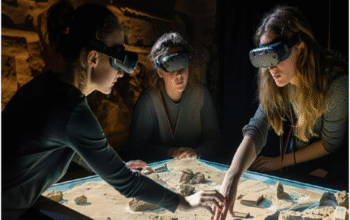Article published by Margaux Chavane , Consultant at Keyrus Management & Lina Bernal , Head of the Change Management practice at Keyrus Management To find out more about Keyrus Management, visit this link .
At a time of digital transformation and with the arrival of Millennials1 on the labor market, the methods of collaboration are set to evolve within companies. To date, three generations coexist in the world of work and difficulties have been observed in the modes of operation, such as the disparity in terms of digital uses and the lack of dialogue between employees of different ages, which is linked to the diversity of channels used within a company (emails vs. corporate social networks for example).
Moreover, the “negative” image of Millennials by some of their elders who qualify them as a “difficult to hire” generation does not encourage exchanges, and further widens the generational gap within companies, creating a disparity in ways of working together. An emergence of collaborative work, a change in habits and an evolution of processes must therefore be at the heart of the evolving strategies of all companies.
In addition, it is important to note that by 2020, more than 50% of the active population in France will be made up of Millennials . This so-called “demanding”, “dispersed” and “impatient” generation is perceived as rejecting traditional corporate codes, favoring freer models, and believing in different values from those of their elders. The habits, culture and values of Millennials will therefore be the norm in the workplace and it is necessary to implement adaptation solutions within companies.
The values of the new generation
– Meaning of work: new generations are looking for meaning. Millennials tend to favor a job in which they find themselves and in which they find an interest . They want a learning, enriching and fulfilling job allowing self-fulfillment. – Flexibility and autonomy: according to an EDHEC study, a Millennial out of four expect their company to offer them more flexible working hours allowing them to adapt to their way of life (leisure, rest, etc.). Today, 18% of French employees feel autonomous in organizing their way of working, whereas in 2017, according to a survey by Malakoff Médéric, only 17% of French employees had the possibility of teleworking at least once a week. – Transparency: in a still very classic model of hierarchical and siled companies, transparency is still too little developed: there are still compartmentalizations and filters on the elements communicated to employees and the information reported to management. Yet it is an important value for Millennials. With the emergence of digital, horizontal communication is increasingly accessible and necessary for mutual trust and belonging to a group. Thus, Millennials expect total transparency within their company for which they want to feel like an integral part and in line with its values. – Work-life balance: even if the professional career remains an important point for the generation of Millennials which today is partly defined by this social position, work must remain a source of personal fulfillment. Unlike some of its ancestors, this generation, although hyper-connected, values its right to disconnect outside of work and refuses to extend its working hours, except in cases of proven need discussed with its management. – Recognition, trust and team spirit: this generation requires reviewing the positioning of the human being within the concerns of companies. One of the first factors favored by Millennials is the atmosphere. They want to feel confident in their workspace, which also becomes a place of socialization. Furthermore, the Millennial is not insensitive to the recognition of his peers. A responsible job helps him to maintain his motivation. – Valorization of skills: considering that the development of skills must occupy a full place in their careers, Millennials wish to have the possibility of participating in various projects, while contributing to several teams in order to enrich their knowledge and consider a rapid evolution.
According to the National Interprofessional Agreement (ANI) on professional equality and quality of life at work, the concept of QVT is defined as being a set of ” conditions under which employees carry out their work and their ability to express themselves and act on its content . Through their values, Millennials are therefore looking for a job that makes sense, that is empowering, that allows them to have a quality of life at work and that promotes commitment. In response to this observation, the HR function, with the support of management, must seek appropriate management methods. Different means can be implemented to build loyalty and retain key skills.
How to respond to these issues?
Among the devices that can help HRDs and company management to reconcile their efforts to contribute to the development of all generations in the workplace are:
it is important to listen to them. This is usually done through annual surveys. However, it is important to put in place an ongoing monitoring mechanism. Through these tools, week after week, the employee can express his feelings, anonymously or not, which allows management to implement continuous improvement actions.
Keyrus Management steps in to support companies in driving change and improving HR and managerial performance, in response to these challenges. Our toolbox makes it possible to set up employer branding systems, and to contribute to the successful adoption of collaborative tools and workplace climate barometers, among others.
ABOUT THE AUTHORS
Margaux Chavane has experience in the field of project management consulting and change management. She has carried out research, change management, analysis and data testing missions for various clients. She regularly works on transformation projects and supports HR and managerial functions.
Lina Bernal has more than 15 years of experience in management consulting and 11 years in supporting transformation. She regularly supports organizational transformation programs, efficiency improvement and systems implementation in various fields (CRM, PLM, data protection, HR transformation, audit of the managerial function). Its interventions include various sectors of activity: industry, insurance, energy, telecommunications, public sector, etc.




